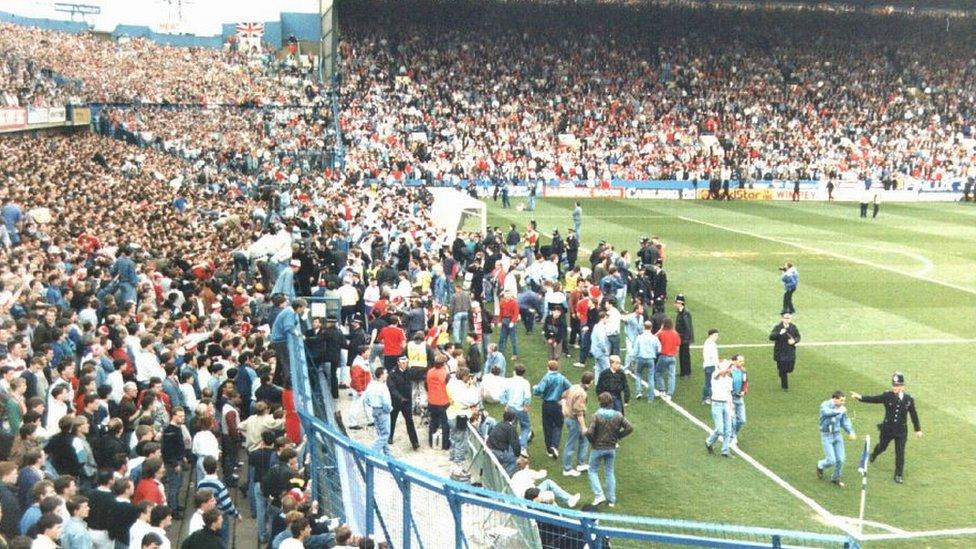Hillsborough Inquests: Coroner to begin summing up
- Published
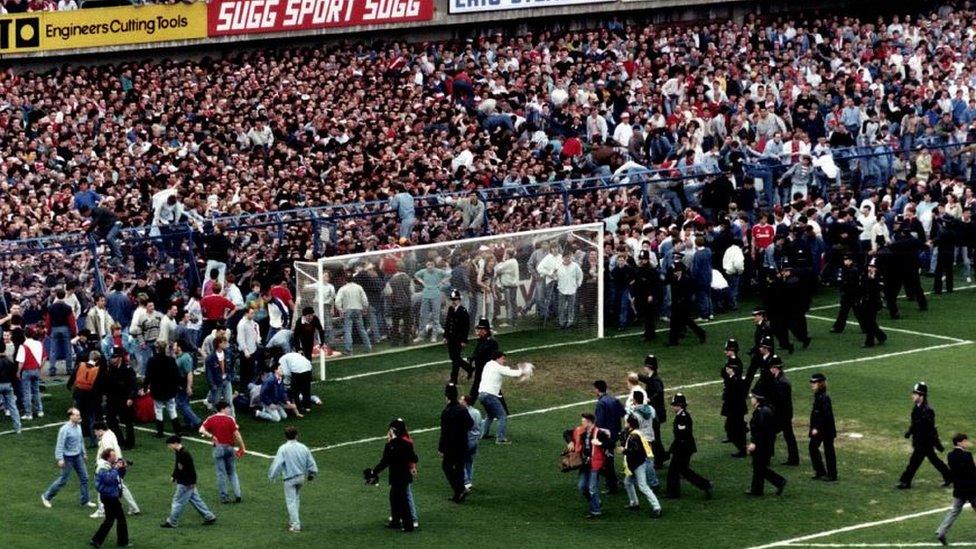
Earlier in the inquests, jurors heard evidence about the movements of the 96 on the day of the disaster
The coroner at the Hillsborough inquests is due to begin summing up after hearing nearly two years of evidence into the 1989 disaster.
Sir John Goldring has called more than 500 witnesses including survivors, police and medical experts.
Over the next three weeks, he will review evidence on how the 96 Liverpool fans at the FA Cup semi-final in Sheffield died.
The jury is due to retire to consider its verdicts on 22 February.
The inquests, which began on 31 March 2014, are already the longest in English legal history.
The Hillsborough Independent Panel set up in 2009 reviewed 450,000 pages relating to the disaster before publishing its report in September 2012.
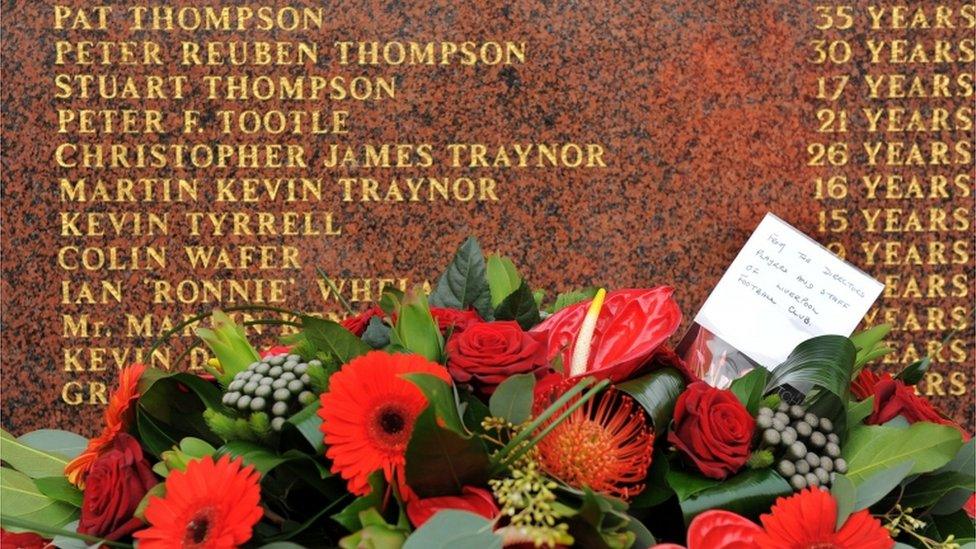
The youngest victim of the Hillsborough disaster was 10 years old, the oldest was 67
In November that year, the original 1991 inquests were quashed by the High Court.
Sitting at a purpose-built coroner's court in Birchwood, near Warrington, the jury has looked at 4,000 pages of documents and hours of video evidence relating to the UK's worst ever sporting disaster.
During 279 days of hearings, evidence was given on the design of the stadium, planning and preparation for the game and emergency response, as well as the movements of the 96 fans and the care they were given.
When they retire, the jury of seven women and three men will be asked to consider a set of written questions relating to the deaths of the 96 Hillsborough victims.
'Earlier intervention'
Those who died were caught in a crush on the Leppings Lane terraces of the Sheffield stadium as the FA Cup game kicked off on 15 April 1989.
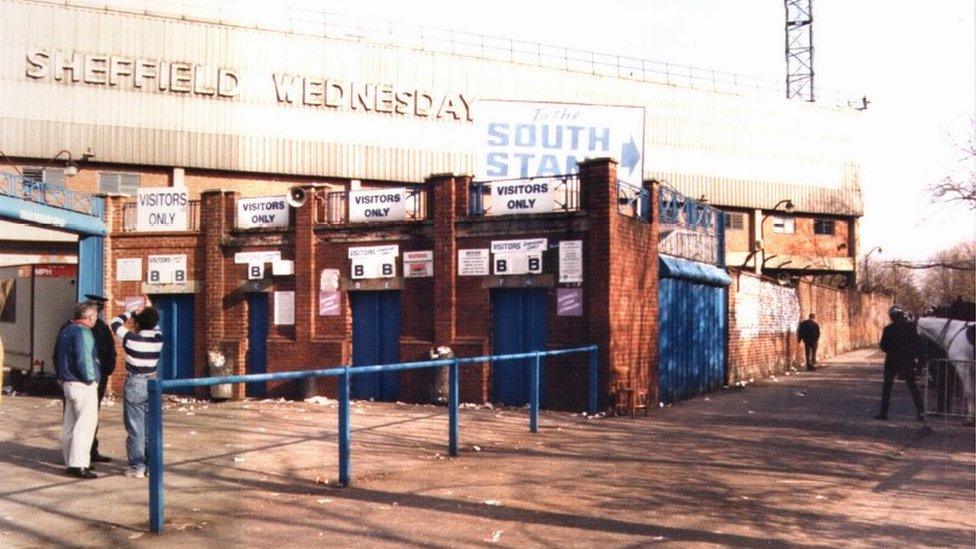
The inquests heard that an exit gate was opened to relieve pressure from Liverpool fans at the turnstiles
A police order to open an exit gate to relieve pressure at the turnstiles led to around 2,000 Liverpool fans entering "relatively full" pens via a tunnel, the inquests heard.
The jury has also heard evidence relating to the emergency response. At least one medical expert claimed that some of the victims might have been saved by a "sustained and earlier" intervention.
Unlike the previous inquests, which were held in Sheffield, the coroner Sir John Goldring did not establish a "3.15pm cut-off time" after which no evidence could be considered.
The 1989 match commander David Duckenfield and South Yorkshire Police are among the 12 individuals and 12 organisations listed as interested parties, along with the families of 95 of the 96 victims.
One victim, Martin Wild, had no surviving relatives who could be traced.
The cost of the new inquests, which were set up in February 2013, had reached £14m by November last year.

Who were the 96 victims?
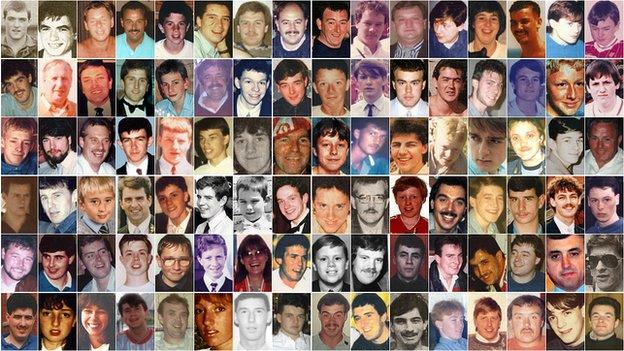

- Published26 April 2016
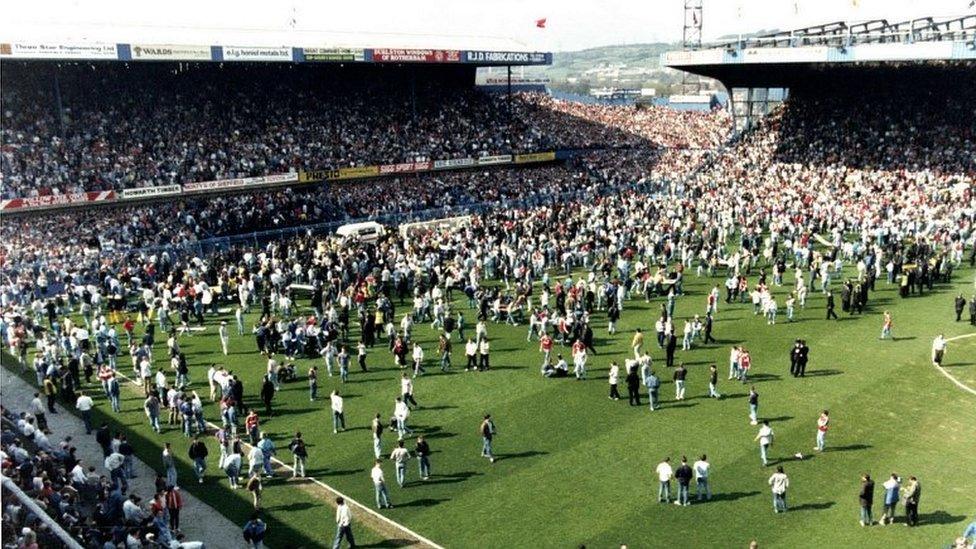
- Published5 November 2015
